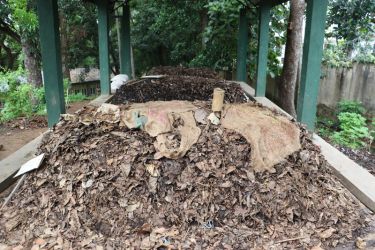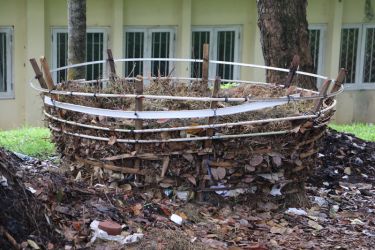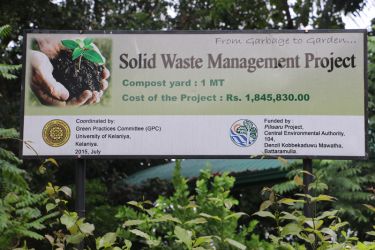Solid Waste Management
Composting
Composting is a way to accelerate the natural decomposition process by balancing the carbon to nitrogen ratio (C:N) and providing adequate air and moisture to enhance microbial activity. It is a better way to recycle garden waste and other degrading wastes by making lot of benefits to the environment as well as to the human. Considering all the aspects, University of Kelaniya has initiated composting project to make university environment a beautiful and a better place.
There are two compost yards in the University, I – At the Faculty of Medicine and II – At the land scape division. Composting in the Compost yard II, was started – September 14th, 2015. Composts are producing using garden wastes received from daily accumulation from the university premises.
- About 350 kg of Garden wastes Receives per day from Dalugama university premises.
- A Compost pile is around – Height = 1 – 1.2 m (3.5 – 4 ft), Length = 1m, Width = 0.5 m
– Gliricidia maculate
– Tithonia diversifolia (Mexican Sunflower)
– Crotalaria juncea (Sunn Hemp)
has planted within the area. And they are added as Nitrogen source, in order to maintain C : N ratio of the compost.
From the date of commence (2015 October) up to date of 2017 November about 13 cubes of compost fertilizer have been produced. These compost are now being used for the Fruit and vegetable garden.
Compost production of the Faculty of medicine: Building was donated by the Central Environmental Authority and was operational since 11.12.2013.
- Row material: Solid waste 100 ft3 per day and liquid compost from biogas unit
- Compost product: 500 -700 kg per month [sells 5kg bag for Rs 100]
- Man power: 08 h per day
Compost yard at the Faculty of Medicine.
Compost yard adjacent Landscape Division.




